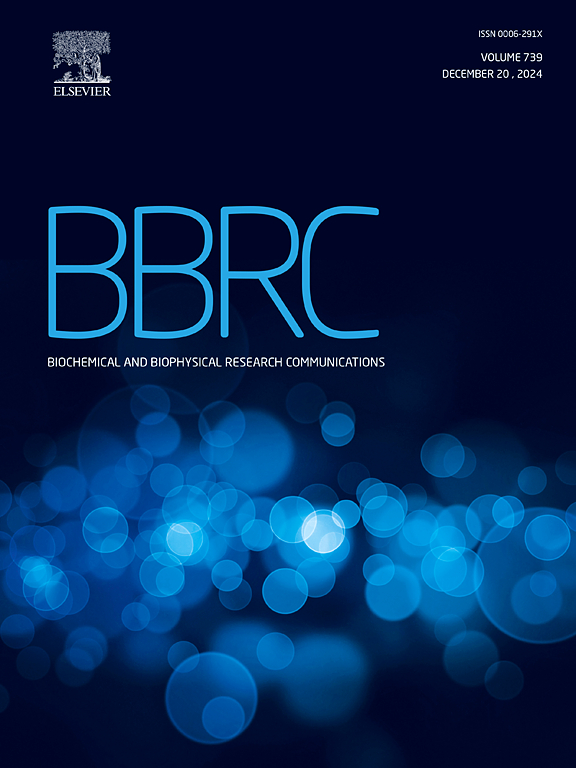ESCRT介导酵母微核吞噬和巨核吞噬。
IF 2.2
3区 生物学
Q3 BIOCHEMISTRY & MOLECULAR BIOLOGY
Biochemical and biophysical research communications
Pub Date : 2025-01-01
DOI:10.1016/j.bbrc.2024.151102
引用次数: 0
摘要
内体转运所需分选复合物(ESCRT)是维持核功能和预防神经退行性疾病所必需的。出芽酵母酿酒酵母是研究escrt依赖性疾病的理想模型。核仁蛋白在营养耗竭和雷帕霉素复合物1 (TORC1)激酶靶蛋白失活后,通过巨核吞噬和微核吞噬降解。在这里,我们发现ESCRT对于TORC1失活后核仁蛋白的微核降解至关重要。此外,ESCRT对rDNA缩聚和核仁重塑也至关重要,这是TORC1失活后核仁蛋白微核降解的必要条件。另一方面,ESCRT在大量巨噬中是可有可无的,但在巨核噬中也是至关重要的。因此,ESCRT在营养剥夺的反应中对核仁蛋白的消除具有重要作用。本文章由计算机程序翻译,如有差异,请以英文原文为准。
ESCRT mediates micronucleophagy and macronucleophagy in yeast
Endosomal sorting complex required for transport (ESCRT) is required for maintenance of nuclear functions and prevention of neurodegenerative diseases. The budding yeast Saccharomyces cerevisiae is an ideal model for studying ESCRT-dependent diseases. Nucleolar proteins are degraded by macronucleophagy and micronucleophagy after nutrient depletion and inactivation of target of rapamycin complex 1 (TORC1) kinase. Here, we show that ESCRT is critical for micronucleophagic degradation of nucleolar proteins upon TORC1 inactivation. In addition, ESCRT was also critical for rDNA condensation and nucleolar remodeling, which is necessary for proper micronucleophagic degradation of nucleolar proteins after TORC1 inactivation. On the other hand, ESCRT was dispensable for bulk macroautophagy, whereas it was also critical for macronucleophagy. Thus, ESCRT has an important role for elimination of nucleolar proteins in response to nutrient deprivation.
求助全文
通过发布文献求助,成功后即可免费获取论文全文。
去求助
来源期刊
CiteScore
6.10
自引率
0.00%
发文量
1400
审稿时长
14 days
期刊介绍:
Biochemical and Biophysical Research Communications is the premier international journal devoted to the very rapid dissemination of timely and significant experimental results in diverse fields of biological research. The development of the "Breakthroughs and Views" section brings the minireview format to the journal, and issues often contain collections of special interest manuscripts. BBRC is published weekly (52 issues/year).Research Areas now include: Biochemistry; biophysics; cell biology; developmental biology; immunology
; molecular biology; neurobiology; plant biology and proteomics

 求助内容:
求助内容: 应助结果提醒方式:
应助结果提醒方式:


